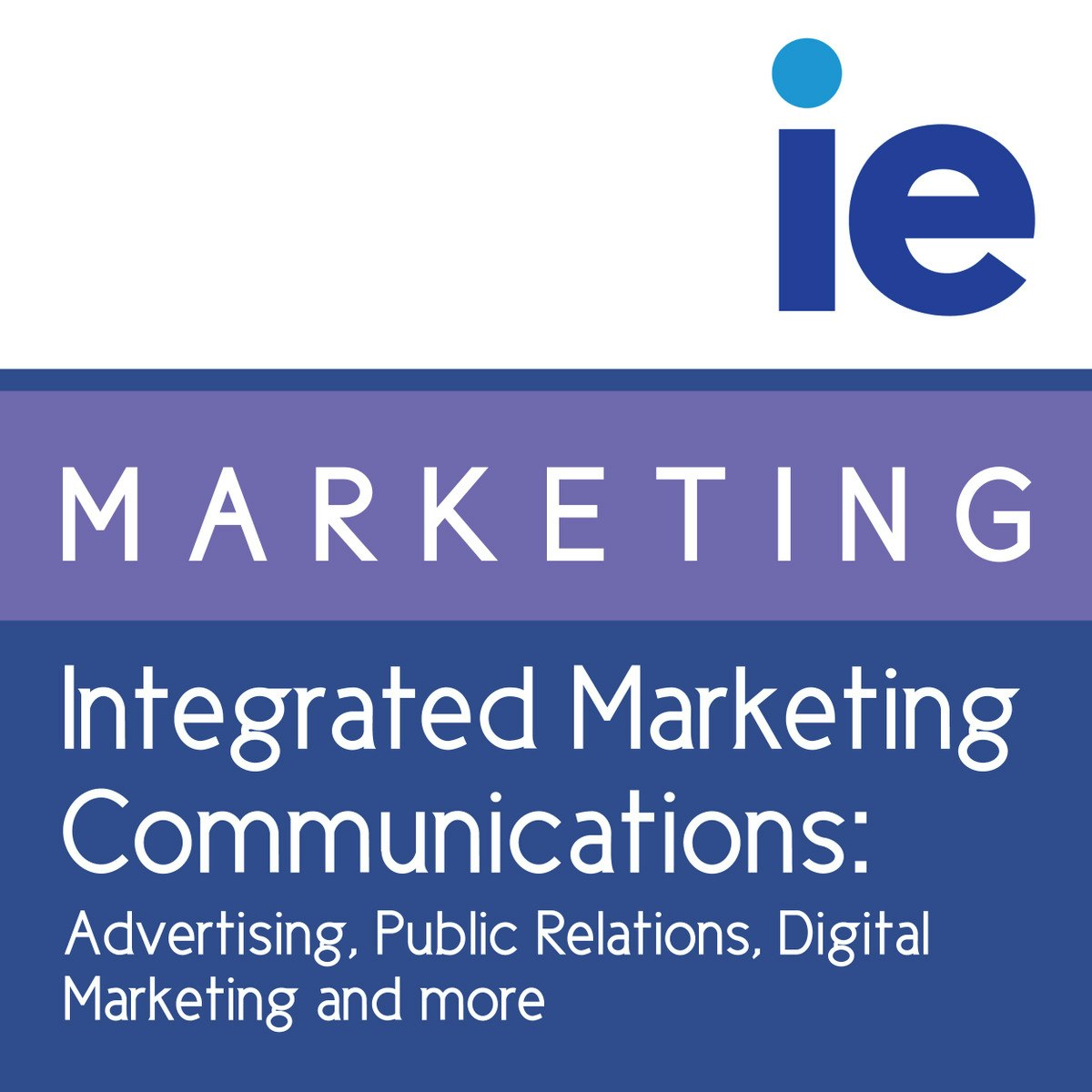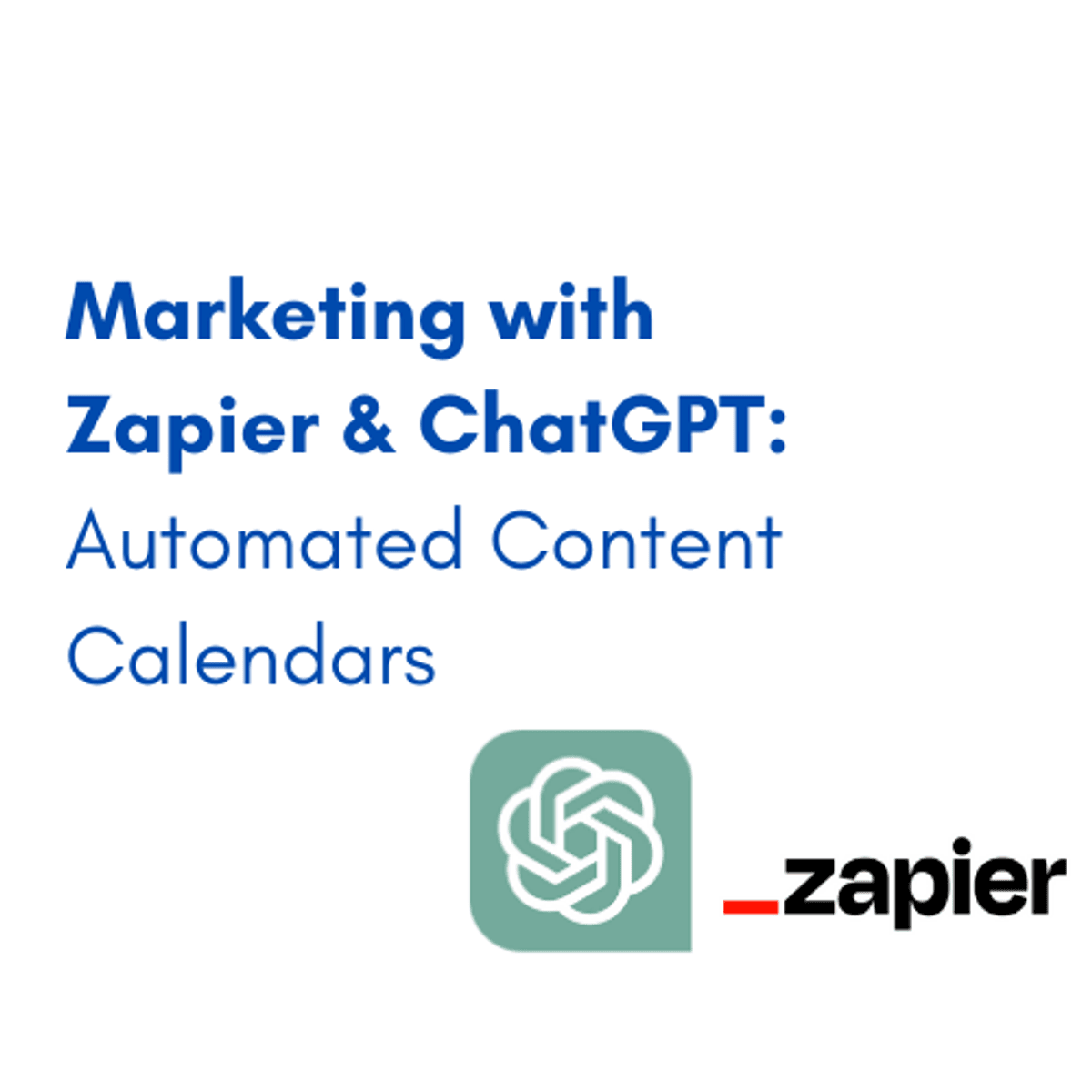Content Marketing Manager
Content Marketing Manager: A Comprehensive Career Guide
A Content Marketing Manager plays a pivotal role in how organizations communicate with their audiences in the digital age. They are the architects and overseers of a company's content strategy, ensuring that all published material aligns with business goals, resonates with target audiences, and ultimately drives engagement or action. This role blends creativity with analytical thinking, requiring a deep understanding of storytelling, audience psychology, and data interpretation.
Working as a Content Marketing Manager can be incredibly dynamic and rewarding. You'll often find yourself leading creative projects, from blog posts and videos to podcasts and infographics, shaping the voice and narrative of a brand. The constant evolution of digital platforms and consumer behavior means the role demands continuous learning and adaptation, making it an exciting field for those who thrive on change and innovation. It's a career path where strategic thinking meets hands-on creation, offering diverse challenges daily.
Introduction to Content Marketing Management
This section delves into the foundational aspects of the Content Marketing Manager role, providing clarity for those new to the field or considering it as a career path.
Defining the Role: What Does a Content Marketing Manager Do?
At its heart, a Content Marketing Manager is responsible for planning, developing, and managing an organization's content. This involves creating valuable, relevant, and consistent content to attract and retain a clearly defined audience. Their primary goal is to drive profitable customer action, whether that's increasing brand awareness, generating leads, improving customer retention, or boosting sales.
They craft content strategies that outline what content will be created, for whom, where it will be published, and how its success will be measured. This strategic vision guides the creation and distribution of various content forms, ensuring everything produced serves a specific purpose within the broader marketing objectives. They are storytellers, strategists, and project managers rolled into one.
Ultimately, the Content Marketing Manager acts as a brand publisher. They ensure the brand's voice is consistent and authoritative across all channels, building trust and establishing the organization as a thought leader within its industry. This involves not just creation, but also curation and promotion of content.
Understanding the core purpose requires looking beyond simple content creation. It's about using content as a strategic asset to build relationships and achieve measurable business outcomes.
The Evolution of Content Marketing Management
Content marketing isn't entirely new; think of Michelin Guides from the early 1900s, created to encourage car travel (and thus tire sales). However, the role of a dedicated Content Marketing Manager solidified with the rise of digital marketing. The internet shifted power to consumers, allowing them to easily ignore traditional advertising and seek information independently.
Early digital marketing focused heavily on direct advertising and basic websites. As search engines like Google became dominant and social media platforms emerged, businesses realized the need for high-quality content to attract organic traffic and engage audiences online. This led to the formalization of content marketing as a distinct discipline.
Initially, tasks might have been scattered across marketing teams. However, the need for a cohesive strategy, consistent brand voice, and measurable results necessitated a dedicated manager. The role evolved from simply writing blog posts to encompass complex strategy, SEO integration, multi-channel distribution, and performance analytics.
Today, Content Marketing Managers leverage sophisticated tools and data to refine strategies, personalize content, and demonstrate ROI, reflecting the field's maturation into a critical business function.
Where Content Marketing Managers Thrive: Key Industries
Content Marketing Managers are valuable across a wide array of sectors, particularly those where building trust, educating consumers, or establishing thought leadership is crucial. Technology companies, both B2B and B2C, heavily rely on content marketing to explain complex products, showcase innovation, and attract skilled talent.
The finance and healthcare industries also employ numerous Content Marketing Managers. Strict regulations and the need for trustworthy information make content a vital tool for educating consumers, building credibility, and navigating sensitive topics responsibly. Content helps demystify complex financial products or health conditions.
Retail and e-commerce businesses utilize content marketing to attract shoppers, provide value beyond the transaction, and foster brand loyalty. Think style guides, tutorials, user-generated content campaigns, and blog posts about lifestyle topics related to their products. Agencies specializing in marketing and advertising also hire extensively, providing content services to diverse clients.
Furthermore, non-profits and educational institutions use content marketing to raise awareness, drive donations, attract students, and share research or impact stories. Essentially, any organization seeking to engage an audience online can benefit from a skilled Content Marketing Manager.
Core Responsibilities of a Content Marketing Manager
This section outlines the day-to-day and strategic tasks that define the Content Marketing Manager role, offering insight into the practical demands of the job.
Crafting the Blueprint: Content Strategy and Execution
Developing a comprehensive content strategy is a cornerstone responsibility. This involves defining goals (e.g., brand awareness, lead generation), identifying target audiences, determining key themes and messages, and planning the types of content to create (blogs, videos, podcasts, etc.). The strategy aligns content efforts with overall business objectives.
Execution involves translating the strategy into actionable plans. This includes creating editorial calendars, managing content creators (in-house or freelance), overseeing the production process, and ensuring content is published on schedule across various channels like the company blog, social media, email newsletters, and potentially third-party sites.
The manager ensures all content maintains a consistent brand voice, style, and quality standard. They also adapt the strategy based on performance data and evolving market trends, making it a living document rather than a static plan. This iterative process is key to long-term success.
These courses provide foundational knowledge in developing and implementing effective content strategies.
For those looking to deepen their strategic thinking, these books offer valuable frameworks and insights.
Knowing Your Audience: Segmentation and Persona Alignment
Effective content resonates because it speaks directly to the needs, interests, and pain points of a specific audience. A Content Marketing Manager must deeply understand who they are trying to reach. This involves market research, analyzing customer data, and developing detailed buyer personas.
Audience segmentation means dividing the broader market into smaller, distinct groups based on characteristics like demographics, behaviors, needs, or psychographics. Content can then be tailored to each segment for maximum relevance and impact. Generic content rarely performs as well as targeted material.
Aligning content with personas ensures that every piece created addresses the specific questions, challenges, or aspirations of a particular ideal customer profile. The manager guides the team to create content that "speaks the language" of the target audience, building stronger connections and fostering trust. This requires empathy and strong analytical skills.
Measuring Success: Performance Analytics and ROI
Creating content isn't enough; Content Marketing Managers must demonstrate its value. This involves tracking key performance indicators (KPIs) like website traffic, engagement rates (likes, shares, comments), lead generation, conversion rates, and ultimately, return on investment (ROI). They need to prove how content contributes to business goals.
Tools like Google Analytics, social media analytics dashboards, and marketing automation platforms are essential for gathering data. The manager must be proficient in interpreting this data, identifying what works and what doesn't, and generating insightful reports for stakeholders.
Analyzing performance allows for continuous improvement. By understanding which topics, formats, and channels drive the best results, the manager can optimize the content strategy, allocate resources more effectively, and refine future content creation efforts. This data-driven approach separates successful content programs from those merely producing noise.
These courses offer practical training in using analytics tools vital for measuring content performance.
Understanding how to measure marketing effectiveness is crucial. These books provide frameworks for assessing ROI.
Bridging Gaps: Cross-Functional Collaboration
Content marketing doesn't exist in a vacuum. The Content Marketing Manager must work closely with various other teams within the organization. Collaboration with the Search Engine Optimization (SEO) team is crucial to ensure content is discoverable by search engines and targets relevant keywords.
They also partner with graphic designers and videographers to create visually appealing assets, web developers to ensure optimal content presentation online, and product teams to accurately represent offerings. Collaboration with the sales team helps align content with the sales funnel and gather insights about customer pain points.
Effective communication and project management skills are essential for navigating these relationships. The manager often acts as a hub, coordinating efforts to ensure a unified message and seamless customer experience across all touchpoints. This requires diplomacy, clarity, and strong organizational abilities.
Essential Skills and Competencies
Aspiring Content Marketing Managers need a blend of creative, analytical, and interpersonal skills. This section highlights the key competencies required to excel in the role.
The Power of Words: Copywriting and Storytelling
At its core, content marketing involves communication. Exceptional writing and editing skills are non-negotiable. This includes crafting clear, concise, and engaging copy for various formats, from long-form articles and website pages to social media updates and email campaigns.
Beyond just good grammar, effective storytelling is vital. Content Marketing Managers need to weave narratives that capture attention, evoke emotion, and connect with the audience on a human level. They must translate brand messages and complex ideas into compelling stories that resonate and inspire action.
Understanding different tones and styles, and adapting them for various audiences and platforms, is also crucial. Whether writing a technical white paper or a witty tweet, the ability to craft impactful language is paramount.
These courses focus specifically on honing writing and storytelling skills essential for content marketing.
This classic book remains a touchstone for persuasive communication in advertising and marketing.
Decoding Data: Proficiency with Analytics Tools
Modern content marketing is data-driven. Managers need to be comfortable using analytics platforms to track performance, understand audience behavior, and measure the impact of their efforts. Proficiency with tools like Google Analytics is fundamental for monitoring website traffic, user engagement, and conversion paths.
Beyond web analytics, familiarity with social media analytics (native platform insights or third-party tools), email marketing platform reports, and potentially CRM data is important. The ability to synthesize data from multiple sources provides a holistic view of content performance.
It's not just about knowing how to use the tools, but also about interpreting the data correctly. Managers must identify meaningful trends, draw actionable insights, and communicate findings effectively to stakeholders, justifying strategic decisions with evidence.
These courses can help you master the analytics tools used in content marketing.
Visibility Matters: Understanding SEO and SEM
Creating great content is only half the battle; it needs to be discoverable. A solid understanding of Search Engine Optimization (SEO) principles is essential. This includes keyword research, on-page optimization (titles, meta descriptions, headers), link building, and understanding technical SEO factors that affect site visibility.
Content Marketing Managers collaborate with SEO specialists or integrate SEO best practices directly into the content creation process. They ensure content is structured and written in a way that appeals to both users and search engine algorithms, maximizing organic reach.
While SEO focuses on organic traffic, familiarity with Search Engine Marketing (SEM), particularly paid search advertising (like Google Ads), is also beneficial. Understanding how paid and organic search interact helps create a more comprehensive digital marketing strategy.
These courses cover essential SEO knowledge needed for content visibility.
Leading the Charge: Project Management and Leadership
Content Marketing Managers often juggle multiple projects, deadlines, and stakeholders simultaneously. Strong project management skills are crucial for keeping everything organized and on track. This includes planning timelines, allocating resources, managing budgets, and using project management tools.
They typically lead content creators, whether internal staff or external freelancers. Leadership abilities are needed to motivate the team, provide clear direction, offer constructive feedback, and foster a collaborative environment. They must ensure everyone understands the strategy and their role in executing it.
Effective communication, problem-solving, and adaptability are key leadership traits. They need to navigate challenges, manage conflicting priorities, and champion the content strategy within the broader organization.
This book offers insights into managing creative teams, a common challenge for Content Marketing Managers.
Career Progression for Content Marketing Managers
Understanding the typical career path helps aspiring professionals set realistic goals and plan their development. This section explores the journey from entry-level roles to senior leadership positions.
Starting the Journey: Entry-Level Roles
Most Content Marketing Managers don't start in that exact role. Common entry points include positions like Content Creator, Copywriter, Content Specialist, Social Media Coordinator, or Marketing Assistant. These roles provide foundational experience in creating specific types of content, using marketing tools, and understanding audience engagement.
In these initial roles, individuals focus on execution – writing blog posts, managing social media accounts, drafting emails, or assisting with campaign logistics. It's a crucial phase for honing specific skills like writing, basic SEO, and using content management systems (CMS).
Building a strong portfolio of work and demonstrating initiative are key during this stage. Showing an understanding of strategy, even while focused on tactics, can accelerate advancement. Seeking opportunities to contribute to planning or analyze performance data is beneficial.
Climbing the Ladder: Mid-Career Advancement
After gaining several years of experience and demonstrating strategic thinking, professionals can advance to roles like Content Marketing Manager, Senior Content Specialist, or Content Strategist. At this level, responsibilities shift towards planning, strategy development, team management, and budget oversight.
Mid-career professionals are expected to have a deeper understanding of analytics, ROI measurement, and cross-functional collaboration. They manage larger projects, potentially lead small teams, and contribute significantly to the overall marketing strategy. Specialization in areas like SEO content, video marketing, or a specific industry might occur.
Further advancement can lead to titles like Senior Content Marketing Manager or Director of Content Marketing. These roles involve greater strategic responsibility, managing larger teams and budgets, and influencing broader marketing initiatives within the organization.
Reaching the Summit: Long-Term Opportunities
Experienced Content Marketing leaders can progress to senior executive roles. Titles like VP of Marketing, Chief Marketing Officer (CMO), or Head of Content involve setting the overall marketing vision for the company, managing entire marketing departments, and contributing to high-level business strategy.
Alternatively, some seasoned professionals leverage their expertise to become independent consultants, agency owners, or influential thought leaders in the industry. Others might pivot into related senior roles in Brand Management, Digital Strategy, or Communications.
Long-term success often depends on a combination of strategic acumen, leadership skills, a proven track record of driving results, and continuous adaptation to the evolving digital landscape. Staying curious and committed to lifelong learning is essential.
This comprehensive marketing text covers many high-level strategic concepts relevant to senior roles.
Accelerating Growth: Certifications and Lateral Moves
While experience is paramount, professional certifications in digital marketing, content marketing, SEO, or specific analytics tools can enhance credibility and potentially accelerate career progression. Certifications demonstrate specialized knowledge and a commitment to professional development.
Lateral moves into related areas like Product Marketing, Brand Management, Digital Marketing Specialist, or SEO Specialist roles can also broaden experience and open new advancement opportunities. Exposure to different facets of marketing builds a more well-rounded skillset.
Networking within the industry, attending conferences, and contributing to industry publications can also raise visibility and create pathways for growth. Building a strong personal brand complements professional experience and qualifications.
Consider exploring courses that offer micro-credentials or specializations to target specific skill gaps.
Formal Education Pathways
While practical experience and a strong portfolio are often key, formal education can provide a valuable foundation. This section explores relevant degree programs and academic avenues.
Building Blocks: Relevant Undergraduate Degrees
A bachelor's degree is often preferred, though not always strictly required, for Content Marketing Manager roles. Degrees in Marketing, Communications, Journalism, English, or Public Relations are particularly relevant. These programs typically develop strong writing, communication, critical thinking, and analytical skills.
Marketing programs provide a broad understanding of business principles, consumer behavior, market research, and various marketing channels. Communications and Journalism degrees emphasize storytelling, audience analysis, and effective messaging across different media. English degrees hone writing, editing, and analytical interpretation skills.
Regardless of the major, students should seek internships, freelance opportunities, or campus media involvement to gain practical content creation experience and build a portfolio. Coursework related to digital marketing, data analysis, or graphic design can also be advantageous.
These foundational courses cover core marketing principles often taught in undergraduate programs.
Deep Dives: Graduate Programs and Specializations
For those seeking advanced knowledge or aiming for leadership roles, a master's degree can be beneficial. Master's programs in Marketing, Integrated Marketing Communications (IMC), Digital Marketing, or even an MBA with a marketing concentration offer deeper strategic insights.
These programs often cover advanced topics like marketing analytics, global marketing, brand strategy, consumer psychology, and marketing leadership. They can provide a competitive edge, particularly for roles requiring significant strategic planning or team management.
Graduate studies often involve research projects or capstone experiences that allow students to apply theoretical knowledge to real-world problems. Networking opportunities with faculty and peers can also be valuable for career advancement.
Consider these advanced marketing courses, similar in scope to topics covered in graduate specializations.
Exploring the Frontier: Research Opportunities
For individuals interested in the academic side or pushing the boundaries of the field, PhD programs offer opportunities for in-depth research. Research areas relevant to content marketing include consumer behavior, digital media effects, marketing analytics, communication theory, and human-computer interaction.
Academic research contributes to the theoretical understanding that underpins effective marketing practices. Researchers might investigate how different content formats influence persuasion, how algorithms shape content consumption, or the ethical implications of personalized marketing.
While a PhD is not necessary for most practitioner roles, the rigorous analytical and research skills developed can be valuable in data-intensive marketing roles or high-level strategy positions. Some researchers also consult for businesses or transition into industry roles after academia.
This book delves into the psychological aspects of influence, a topic often explored in consumer behavior research.
Online and Self-Directed Learning
Formal degrees aren't the only path. Online learning offers flexible and accessible ways to gain the necessary skills, whether you're changing careers or upskilling. OpenCourser provides tools to find relevant marketing courses and manage your learning journey.
Pivoting Your Career: The Viability of Online Education
Transitioning into content marketing via online courses is entirely feasible, especially for those with adjacent skills like writing, editing, or project coordination. Online platforms offer courses covering everything from basic copywriting and SEO to advanced content strategy and analytics.
The flexibility of online learning allows career pivoters to study around existing work schedules. Building skills incrementally through targeted courses can be less daunting and more affordable than pursuing a full degree. Many courses offer certificates upon completion, which can be added to resumes and LinkedIn profiles.
However, self-discipline and proactivity are crucial. Success requires actively engaging with course materials, seeking feedback, and applying learned concepts. It's not just about collecting certificates; it's about mastering the skills.
For those navigating a career change, starting with foundational courses can build confidence and essential knowledge.
Beyond Theory: The Importance of Portfolio Projects
While online courses provide valuable theoretical knowledge and structured learning, practical application is essential. Employers want to see what you can *do*, not just what you know. Building a portfolio of real work is critical, especially for career changers.
Supplement online coursework with personal projects. Start a blog, create content for a local non-profit, offer freelance services at a reduced rate initially, or develop spec pieces (sample content created as if for a real client). These projects demonstrate your skills in action.
Many online courses include project-based assignments that can contribute to a portfolio. Look for opportunities within courses to create tangible outputs like content strategies, sample blog posts, or analytics reports. Actively seek feedback on your project work to refine your skills.
Consider project-based courses like these to gain hands-on experience for your portfolio.
Targeted Skills: Micro-credentials and Specializations
Micro-credentials, specialized certificates, or focused course bundles allow learners to develop deep expertise in specific areas of content marketing. Instead of a broad degree, you might pursue a certification in SEO, Google Analytics, social media marketing, or email marketing.
These targeted qualifications can be particularly valuable for demonstrating proficiency in high-demand skills. They show employers you have invested in mastering specific tools or techniques relevant to the Content Marketing Manager role.
Platforms like Coursera, edX, and others offer specializations and professional certificates from universities and industry leaders. Completing these can signal competence in areas like data analysis, specific software platforms (like HubSpot or Salesforce Marketing Cloud), or advanced strategic planning.
Explore specialized courses to gain specific competencies relevant to content marketing.
Tools and Technologies
Content Marketing Managers rely on a variety of software and platforms to streamline workflows, manage content, analyze performance, and optimize strategies. Familiarity with the relevant tech stack is crucial.
Managing the Flow: Content Management Systems (CMS)
A Content Management System (CMS) is the backbone for publishing and managing content on a website. Platforms like WordPress, Drupal, Joomla, or enterprise solutions like Adobe Experience Manager are commonly used. Proficiency in using a CMS is often a basic requirement.
Managers use the CMS to upload and format blog posts, create landing pages, manage website structure, and sometimes handle basic SEO settings. Understanding CMS capabilities and limitations helps in planning content execution effectively.
While deep technical knowledge isn't always necessary, being comfortable navigating the backend of a website, troubleshooting minor issues, and working with developers on more complex implementations is important.
The AI Assistant: Leveraging Artificial Intelligence
Artificial Intelligence (AI) is rapidly transforming content marketing. AI-powered tools can assist with various tasks, from generating content ideas and drafting initial copy (like ChatGPT or Jasper) to optimizing headlines, analyzing content performance, and personalizing user experiences.
Content Marketing Managers need to understand how to leverage these tools ethically and effectively. This means using AI as an assistant to enhance creativity and efficiency, not as a complete replacement for human strategy and oversight. Critical judgment is needed to ensure AI-generated content aligns with brand voice and quality standards.
Staying updated on AI developments and experimenting with new tools is becoming increasingly important for maintaining a competitive edge in the field. Understanding prompt engineering can significantly improve the quality of AI outputs.
These courses explore the intersection of AI and content creation.
Broadcasting the Message: Social Media Management Tools
Managing multiple social media channels requires organization and efficiency. Social media scheduling and management platforms like Hootsuite, Buffer, Sprout Social, or CoSchedule allow managers to plan, schedule, and publish posts across different networks from a single interface.
These tools often include features for monitoring social conversations, engaging with followers, and analyzing social media performance metrics. They help streamline workflows, ensure consistent posting schedules, and provide valuable data for optimizing social strategies.
Familiarity with these platforms is highly beneficial, as social media is a key channel for content distribution and audience engagement. Understanding their analytics capabilities helps measure the impact of social content efforts.
Keeping an Eye Out: Competitive Analysis Software
Understanding the competitive landscape is vital for developing effective content strategies. Tools like SEMrush, Ahrefs, Moz, or SpyFu help Content Marketing Managers analyze competitors' content performance, SEO strategies, keyword rankings, and backlink profiles.
These platforms provide insights into what content resonates within the industry, which keywords competitors are targeting, and where opportunities might exist to outperform them. This data informs content planning, topic selection, and SEO efforts.
Using competitive analysis tools allows managers to benchmark their own performance, identify content gaps, and stay informed about industry trends. It's a key part of developing a data-informed strategy that aims for market leadership.
Ethical Considerations in Content Marketing
As content marketing becomes more sophisticated, ethical considerations become increasingly important. Managers must navigate issues related to transparency, data privacy, and authenticity to build and maintain audience trust.
Clarity and Honesty: Transparency in Sponsored Content
When brands pay for content placement or collaborate with influencers, transparency is crucial. Content Marketing Managers must ensure that any sponsored content, native advertising, or paid partnership is clearly disclosed to the audience. Deceptive practices erode trust and can lead to regulatory scrutiny.
Guidelines from bodies like the Federal Trade Commission (FTC) in the US provide specific rules for disclosure. Managers need to be aware of these regulations and ensure compliance across all campaigns involving paid promotion or endorsements.
Maintaining transparency builds credibility and fosters a more honest relationship with the audience. Ethical managers prioritize clear labeling of promotional content, even if it means slightly lower engagement on a specific piece.
Respecting Boundaries: Data Privacy Regulations
Content marketing often relies on collecting and using audience data for personalization and targeting. Managers must be knowledgeable about data privacy regulations like the General Data Protection Regulation (GDPR) in Europe or the California Consumer Privacy Act (CCPA).
This involves understanding rules around obtaining consent for data collection, ensuring data security, providing users with control over their information, and being transparent about how data is used. Non-compliance can result in significant fines and reputational damage.
Ethical content marketing respects user privacy. Managers should advocate for data practices that prioritize user rights and build strategies that rely on ethical data collection and usage, fostering trust rather than exploiting personal information.
The Fine Line: Balancing Persuasion with Authenticity
Content marketing aims to influence audience behavior, but ethical practice requires balancing persuasive goals with authenticity. Content should provide genuine value and be truthful, avoiding hype, misleading claims, or manipulative tactics.
Building a brand voice that is authentic and relatable is key. Audiences are increasingly skeptical of overly polished or disingenuous corporate messaging. Content Marketing Managers should strive for honesty and transparency in their communications.
This involves accurately representing products or services, acknowledging limitations, and engaging in genuine conversations with the audience. Prioritizing long-term trust over short-term gains through deceptive persuasion is the hallmark of ethical content marketing.
This book explores the psychology of persuasion, highlighting techniques that require ethical consideration when applied in marketing.
Industry Trends Impacting Content Marketing Managers
The digital landscape is constantly changing. Content Marketing Managers must stay abreast of emerging trends to keep their strategies relevant and effective. This section explores key shifts shaping the future of the role.
The Rise of the Machines: AI-Generated Content
AI's ability to generate text, images, and even video is rapidly advancing. Content Marketing Managers need to adapt, learning how to effectively integrate AI tools into their workflows for tasks like idea generation, drafting, and optimization, without sacrificing quality or authenticity. According to research by McKinsey, generative AI could significantly automate marketing tasks.
The challenge lies in using AI strategically – enhancing human creativity rather than replacing it entirely. Managers will need skills in prompt engineering, AI tool evaluation, and ethical oversight to ensure AI-assisted content aligns with brand standards and audience expectations.
Adaptability and a willingness to experiment with new technologies will be crucial for navigating this shift. Those who embrace AI effectively may gain a significant competitive advantage in efficiency and content output.
These courses address the growing importance of AI in content creation and marketing.
Beyond Text: The Shift Toward Interactive and Video Content
Audiences increasingly favor engaging formats beyond traditional blog posts. Video content, particularly short-form video on platforms like TikTok and Instagram Reels, continues to surge in popularity. Interactive content, such as quizzes, polls, calculators, and augmented reality experiences, also drives higher engagement.
Content Marketing Managers need to incorporate these formats into their strategies. This requires understanding video production basics, visual storytelling, and the technical aspects of creating interactive experiences. Skills in multimedia content creation and distribution are becoming more valuable.
Budget allocation and resource planning must adapt to accommodate the potentially higher costs and different skill sets required for video and interactive content production. Measuring the ROI of these formats also requires specific analytical approaches.
This course touches upon harnessing video for sales and marketing.
Global Reach vs. Local Touch: Globalization and Localization
As businesses expand globally, Content Marketing Managers face the challenge of creating content that resonates across different cultures and languages. A one-size-fits-all global strategy rarely works effectively.
Effective international content marketing requires localization – adapting content not just linguistically, but also culturally, to suit specific regional audiences. This involves understanding local nuances, preferences, and regulations.
Managers need strategies for scaling content production across multiple markets while maintaining brand consistency and local relevance. This might involve working with translation services, local marketing teams, and developing culturally sensitive content guidelines.
This course addresses marketing in a global context.
Marketing with Purpose: Sustainability and Social Responsibility
Consumers, particularly younger generations, increasingly expect brands to demonstrate social and environmental responsibility. Content marketing plays a role in communicating a company's values, sustainability initiatives, and ethical practices.
Content Marketing Managers may be tasked with creating content that highlights corporate social responsibility (CSR) efforts authentically, without appearing opportunistic or engaging in "greenwashing." This requires a deep understanding of the company's initiatives and careful messaging.
Integrating themes of sustainability and social impact into the broader content strategy can build brand reputation and connect with value-driven consumers. However, it must be done genuinely and transparently to be effective.
Frequently Asked Questions
Here are answers to some common questions individuals have when considering a career as a Content Marketing Manager.
Is a specific marketing degree mandatory for this role?
While a relevant degree (Marketing, Communications, English, Journalism) is often preferred and can provide a strong foundation, it's not always a strict requirement. Many successful Content Marketing Managers come from diverse educational backgrounds.
What often matters more is demonstrable skill and experience. A strong portfolio showcasing writing ability, strategic thinking, and understanding of digital marketing principles can outweigh the lack of a specific degree, especially for those transitioning from related fields.
Practical experience gained through internships, freelance work, or personal projects, combined with relevant online courses or certifications, can create a compelling profile even without a traditional marketing degree. Focus on building skills and showcasing results.
How does a Content Marketing Manager differ from a Social Media Manager?
While there's overlap, the roles differ in scope. A Social Media Manager focuses specifically on managing a brand's presence and engagement on social media platforms. Their primary goal is often community building, brand awareness, and driving engagement within those specific channels.
A Content Marketing Manager typically has a broader strategic responsibility across multiple channels (blog, email, website, social media, etc.). They develop the overarching content strategy, oversee creation for all platforms, and focus on how content drives larger business goals like lead generation or sales, often including SEO and longer-form content.
Think of it this way: social media is one important *channel* for distributing content, managed by the Social Media Manager. The Content Marketing Manager often sets the strategy for the content *itself* that gets distributed across social media and other channels.
These courses provide insights into social media management and strategy.
What salary range can entry-level professionals expect?
Salaries for entry-level roles leading to Content Marketing Manager (like Content Specialist or Marketing Coordinator) vary significantly based on location, company size, industry, and individual experience. It's best to consult up-to-date salary guides and local job postings.
Resources like the U.S. Bureau of Labor Statistics (BLS) Occupational Outlook Handbook provide general data for marketing roles, though not always specific to "Content Marketing Manager" at the entry level. Salary comparison websites and reports from recruitment firms like Robert Half often offer more current, role-specific ranges.
As individuals gain experience and move into manager roles, salary potential increases substantially. Focusing on developing high-demand skills (like SEO, analytics, video) and demonstrating measurable results can strengthen negotiating power throughout one's career.
How critical is technical SEO knowledge?
While deep technical SEO expertise (like schema markup implementation or site speed optimization) might fall to dedicated SEO specialists, a Content Marketing Manager needs a solid *understanding* of technical SEO principles. They need to know how technical factors impact content visibility and user experience.
This includes understanding concepts like site structure, mobile-friendliness, crawlability, indexability, and page speed. They should be able to identify potential technical issues affecting content performance and collaborate effectively with developers or SEO experts to resolve them.
Knowing enough technical SEO to inform content strategy (e.g., prioritizing mobile optimization for content) and ensure content is published in a search-engine-friendly way is crucial. Deep implementation skills are less critical than strategic awareness.
Can freelance experience lead to full-time positions?
Absolutely. Freelance content creation, copywriting, or content strategy work is an excellent way to build experience, develop a portfolio, and network within the industry. Many full-time Content Marketing Managers started as freelancers.
Freelancing demonstrates initiative, self-management skills, and the ability to deliver results for clients. Successful freelance projects provide tangible proof of your abilities that you can showcase when applying for full-time roles.
Often, companies hire freelancers they've had positive experiences with for full-time positions when openings arise. It serves as an extended "try-before-you-buy" for both parties. Building strong client relationships as a freelancer can directly lead to full-time opportunities.
What industries hire the most Content Marketing Managers?
As mentioned earlier, certain industries are particularly reliant on content marketing. Technology (software, SaaS, hardware), Marketing & Advertising agencies, Financial Services, Healthcare, and E-commerce/Retail are major employers.
However, the need for content marketing is widespread. You'll also find roles in Education, Non-profits, Media & Publishing, Travel & Hospitality, and increasingly, even in more traditional industries like Manufacturing or Professional Services as they embrace digital transformation.
The specific demand can fluctuate based on economic conditions and industry growth trends. Researching job postings on platforms like LinkedIn or Indeed within specific sectors can give a real-time sense of hiring activity.
Embarking on a career as a Content Marketing Manager requires a blend of creativity, strategic thinking, technical understanding, and a commitment to continuous learning. It's a dynamic field with significant potential for growth and impact. Whether you're starting fresh, pivoting from another career, or looking to advance, focusing on building core skills, gaining practical experience, and staying curious about industry trends will serve you well. Resources like OpenCourser can help you find the courses and knowledge needed to navigate your path successfully.











































